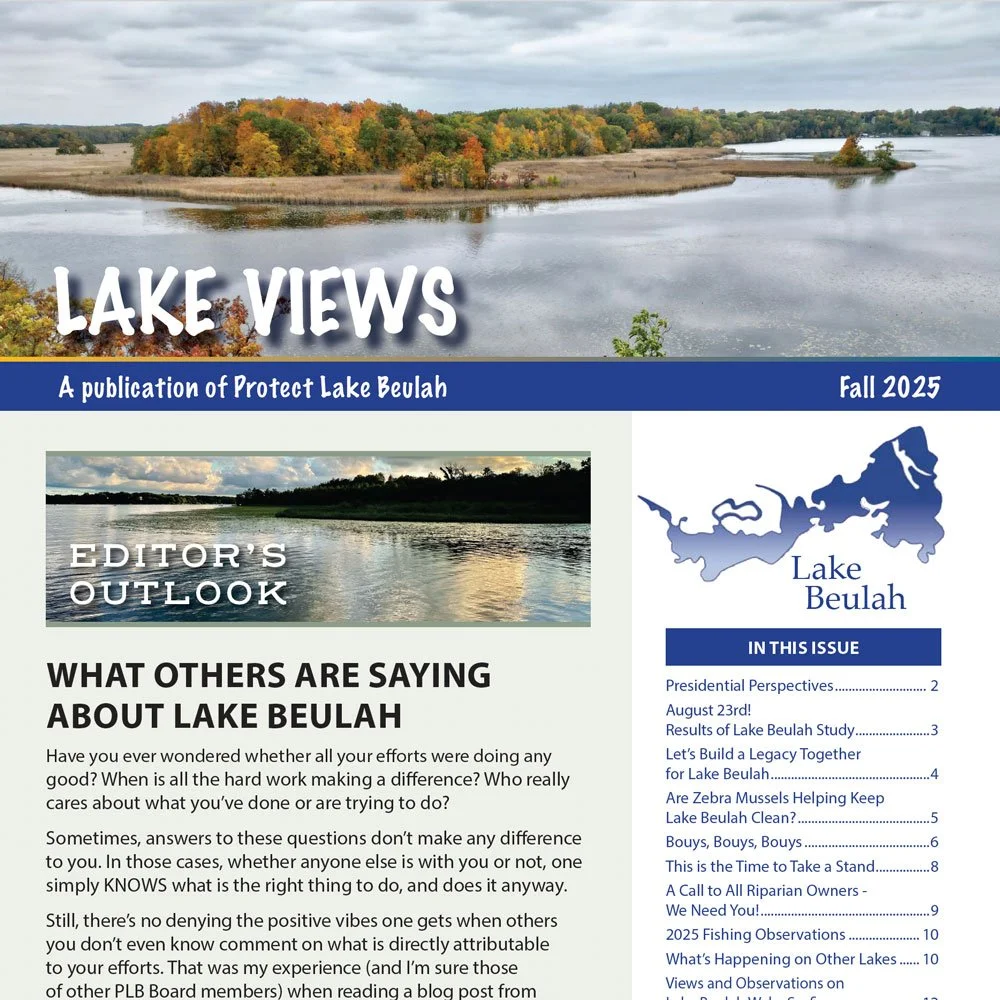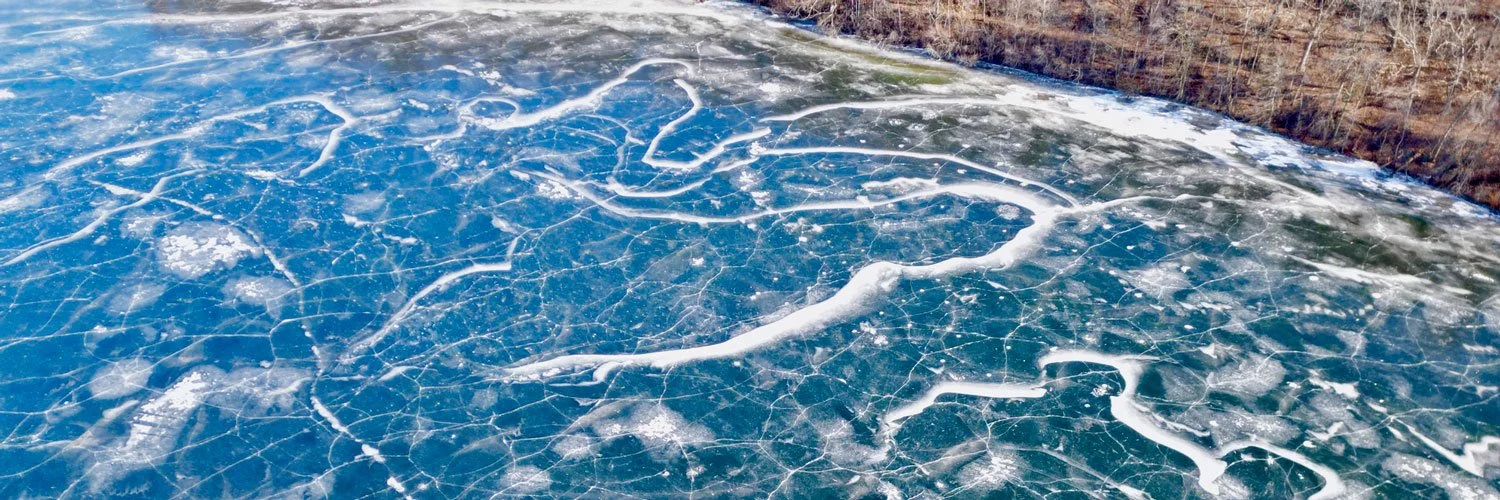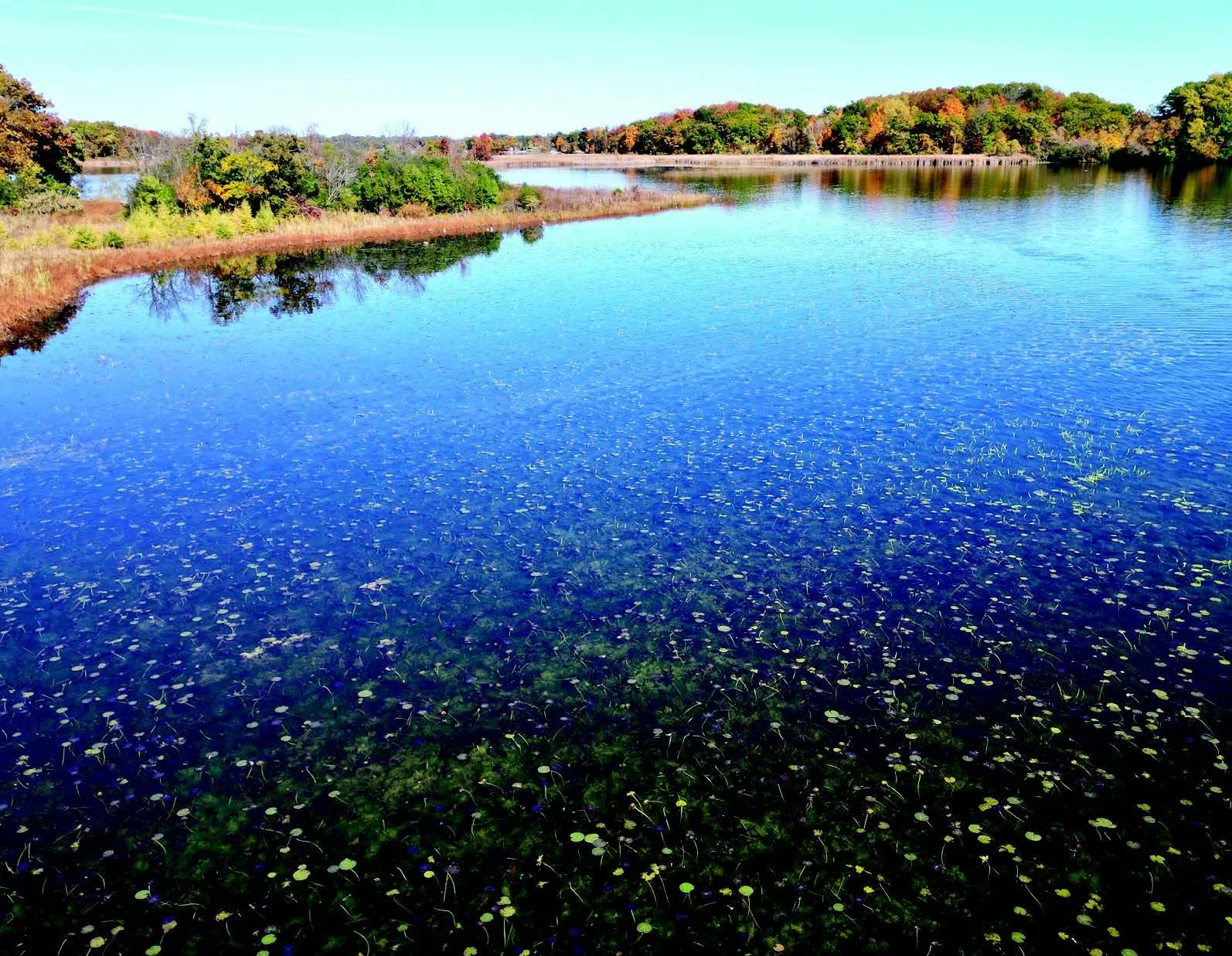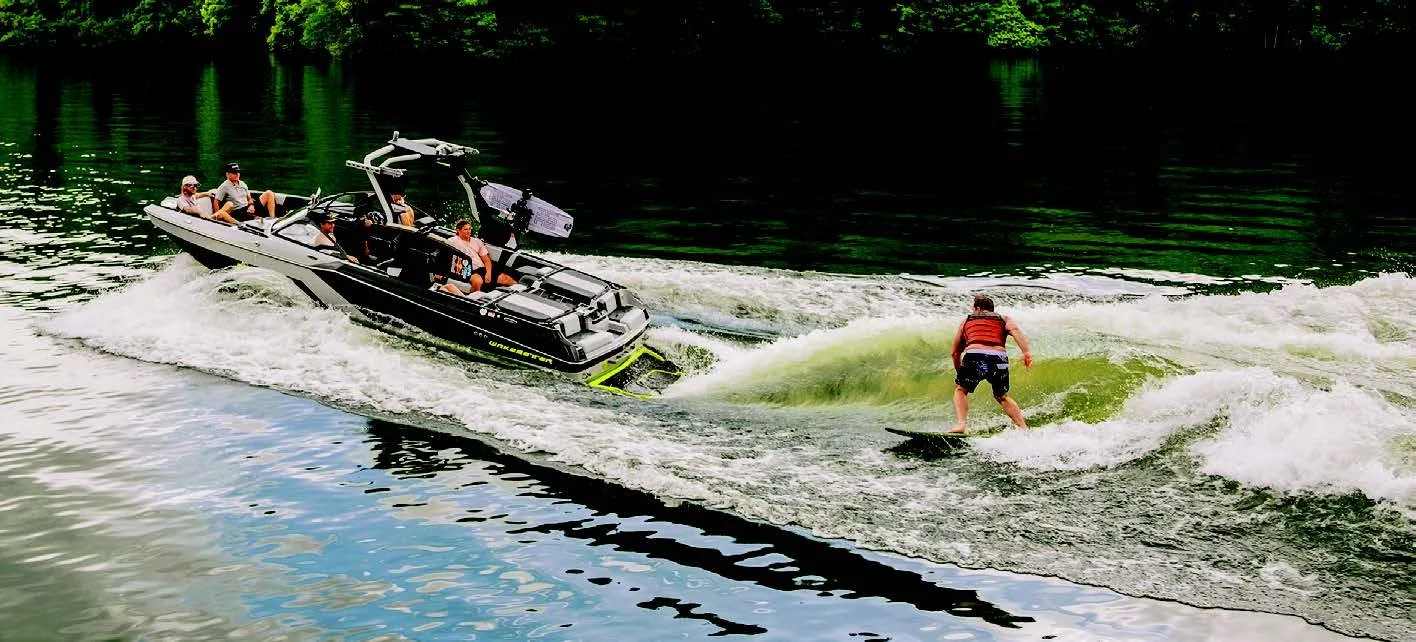BE PART OF PROTECTING LAKE BEULAH
From shoreline preservation to water‑quality monitoring, your donation fuels the work that keeps our lake healthy.
Contributions to PLB are not tax‑deductible.
Terra Vigilis Lake Beulah Wave Impact Study and Summary
Welcome to the Protect Lake Beulah website. If you want to help protect the lake for generations to come, learn more and renew/join PLB today.
Protect Lake Beulah is dedicated to preserving the natural resources of Lake Beulah and to maintaining an inviting environment for all who use the lake.
Fall 2025 Lake Views Newsletter
Some topics covered in this edition:
• What Others are Saying about Lake Beulah
• Results of the Lake Beulah Study
• Let’s Build a Legacy Together for Lake Beulah
• A Call to All Riparian Owners - We Need You!
• 2025 Fishing Observations
• Views & Observations on Lake Beulah Wake Surfing
• News from Other Lakes














